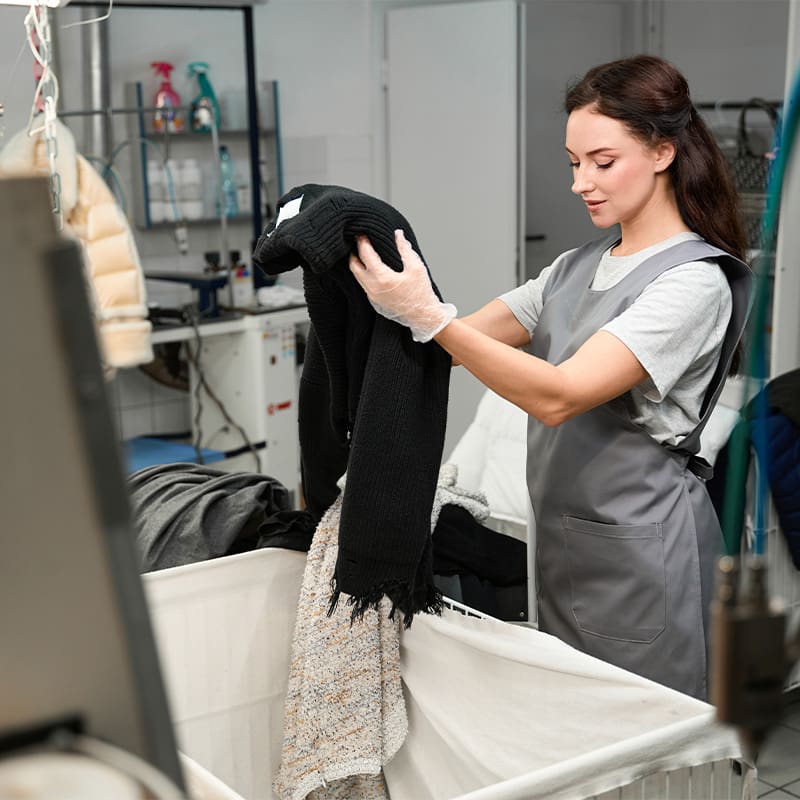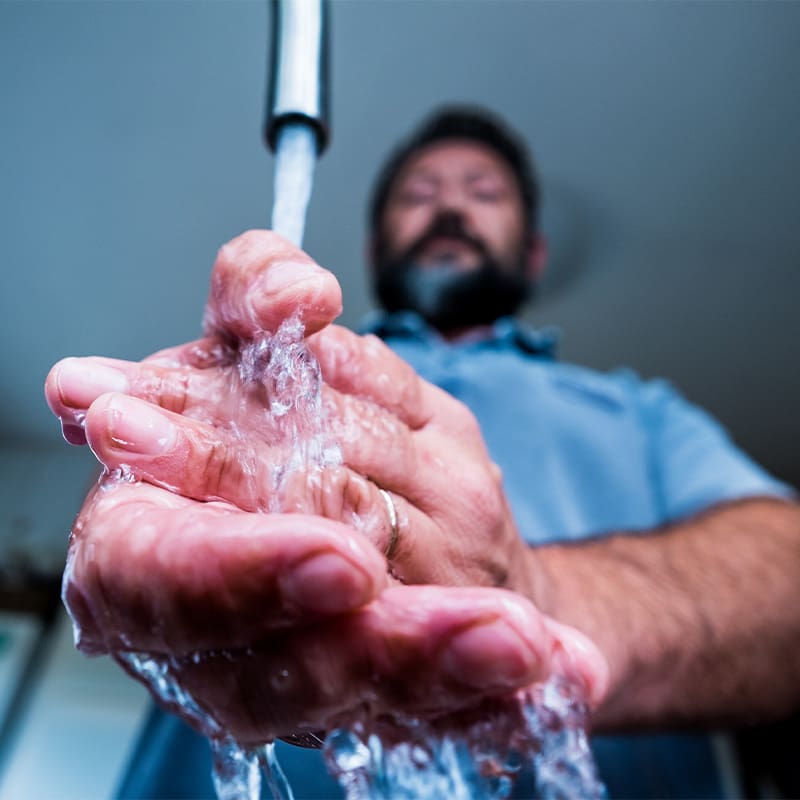Unveiling the Truth: Hard Water vs. Dirty Water in Cleveland

In bustling urban landscapes like Cleveland, Ohio, the purity of our water is a conversation that bubbles beneath the surface of everyday life. It’s essential for health-conscious individuals and business owners to recognize the quality of not just the water they consume but also the water their employees and customers use each day.
The distinctions between hard water and dirty water, often blurred, carry significant implications for health and business operations alike. So, if you’re still wondering whether hard water means dirty water, Office H2O is here with a great explanation and how both impact you and your business.
Understanding Hard Water
Hard water, contrary to some beliefs, isn’t synonymous with dirtiness but rather refers to its concentrated mineral content. It contains high levels of calcium, magnesium, and sometimes other metallic elements, which affect everything from taste to the functionality of plumbing.
Cleveland, much like other cities situated near industrial centers or with a legacy of mining and manufacturing, often experiences higher levels of hard water. This hardness stems from the city’s geological underpinnings; the local water supply passes through extensive deposits of limestone and chalk, which are rich in calcium and magnesium carbonates. Municipal water sources are also fed by Lake Eerie, which naturally contains higher levels of calcium carbonate. Because of this, Clevelanders often find that their water is hard. While not harmful to consume, this hard water can pose challenges for appliances, cleaning processes, and even personal care, leaving limescale buildup and reducing the efficiency of soaps and detergents.
Effects of Hard Water on Health and Business
If you’re running a business in Cleveland, hard water can affect your business in many ways.
From a business perspective, dealing with hard water requires a proactive approach to mitigate any potential negative impact on operations. Some of the ways Cleveland businesses are affected include:
- Increased Maintenance Costs: Appliances that frequently come into contact with hard water, such as coffee machines, water heaters, and boilers, may require more frequent descaling and repairs, leading to higher maintenance costs.
- Reduced Lifespan of Equipment: The mineral deposits from hard water can accumulate in pipes and machinery, potentially reducing the lifespan of this equipment as the scale buildup restricts water flow and causes overheating.
- Impeded Cleaning Efficiency: Hard water can reduce the effectiveness of cleaning agents, resulting in the need for more soap or detergent to achieve the same level of cleanliness, thus increasing operational costs.
- Quality of Consumables: In establishments like cafes and restaurants, the taste and appearance of food and beverages can be adversely affected by hard water, impacting the overall customer experience.
- Laundry Operations: For businesses that rely heavily on laundering, such as hotels and spas, hard water can cause fabrics to become stiff and discolored, affecting both the quality and longevity of linens and towels.
- Aesthetic Implications: Hard water can leave streaks and spots on surfaces like glassware, cutlery, and windows, which may diminish the aesthetic appeal of a business.

Differentiating Hard Water from Dirty Water
Before we harness solutions, it’s critical you understand the differences between hard and dirty water. Dirty water, in contrast to hard water, often contains an assortment of organic matter, bacteria, or pollutants that can pose a serious risk to health. It is characterized by its turbidity, discoloration, or the presence of particulates and has the potential to carry pathogens leading to waterborne diseases. Unlike hard water, which generally remains safe for consumption despite mineral content, dirty water is an immediate concern that requires treatment to be deemed potable.
The convergence of hard and dirty water occurs when contaminants infiltrate a water supply already high in mineral content. Factors such as runoff from agricultural land, industrial waste, and broken sewage lines can lead to a hard water supply becoming dirty. In this state, it is not just a matter of taste or appliance inefficiency; the quality of water directly impacts human health. Therefore, all Clevelanders should be vigilant in monitoring their water, understanding that while hard water can be a nuisance, it is the addition of contaminants that transforms it into a dangerous adversary.
Indicators of Dirty Tap Water in Cleveland
For Cleveland residents and business owners, there are several tell-tale signs that the tap water may be compromised:
- Changes in Water Clarity: Crystal-clear water is a sign of purity. If your tap water appears cloudy, has floating particles, or has settled sediment, it’s a clear indicator that your water could be contaminated with foreign particles.
- Unusual Coloration: Water that is tinted brown, red, orange, or yellow may indicate the presence of rust from corroded pipes, or it could be a sign of contamination from nearby industrial processes.
- Off-Putting Taste: If your tap water tastes metallic, sour, or generally off, it could be due to high mineral content or the presence of contaminants.
- Unpleasant Odor: Any changes in smell, whether it’s a chlorine scent or a rotten egg odor, can signal bacterial growth or chemical additives within the water system.
- Unexplained Gastrointestinal Issues: If residents notice an increased incidence of stomach upsets without a clear cause, it could be related to water quality concerns, especially if it correlates with changes in the water’s taste, smell, or appearance.
If you experience any of these warning signs, take immediate measures, such as getting your water tested or contacting your local officials to inform them that something is wrong. Remember, the safety and health implications of dirty water necessitate a prompt and careful response.
Why Soft Water Shouldn’t Always Be Considered “Clean”
While a water softener can be effective at mitigating the irritating effects of hard water in your Cleveland home or business, it’s important to recognize that softening is not the same as purifying. The process of softening water involves exchanging hard minerals like calcium and magnesium for sodium, which does not address any potential bacterial or chemical contaminants. Therefore, while your softener will help protect your appliances and make your cleaning more efficient, it doesn’t ensure that your water is clean and safe to drink. It’s advisable to complement your water softening system with proper filtration or purification methods to ensure your water is not only soft but also free of health-compromising contaminants.
Health Implications of Hard Water
As residents in Cleveland ponder the repercussions of hard water, let’s look beneath the surface. Hard water is notable for the limescale it leaves behind – which can also manifest on skin and hair, leading to dryness and irritation. If employees’ hands are constantly dry and cracked from washing them, you likely have a hard water problem.
Moreover, while not inherently harmful, overconsumption of certain minerals can be concerning. High levels of iron, potassium, and magnesium in your tap water have the potential to cause adverse health effects, especially for employees who may not need those added minerals.
Business Considerations of Hard Water
Cleveland business owners should keep an eagle eye on the water coursing through their establishments. Hard water can wreak havoc on infrastructure, leading to limescale build-up, reduced efficiency, and increased wear and tear. This means the stakes are higher, and ignoring hard water often leads to more maintenance needs or malfunctions, which turn into costly repairs and replacements.

Solutions for Dealing with Dirty Drinking Water
With hard water being commonplace in Cleveland and the lurking variable of dirty water, it’s a call to action for individuals and businesses alike. Be proactive, and don’t let your water be a silent detriment to your health or your bottom line.
We recognize that the water you drink, cook with, and use in daily operations matters immensely to your well-being and success. That’s why we invite everyone in Cleveland — from small business owners to school officials — to get your free 7-day trial started today! Experience the difference that a state-of-the-art water filtration system in one of our bottleless water and ice coolers can make in your life and work.
